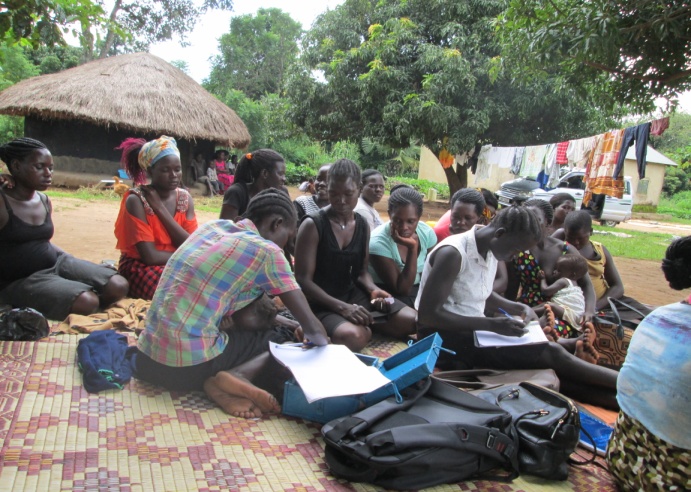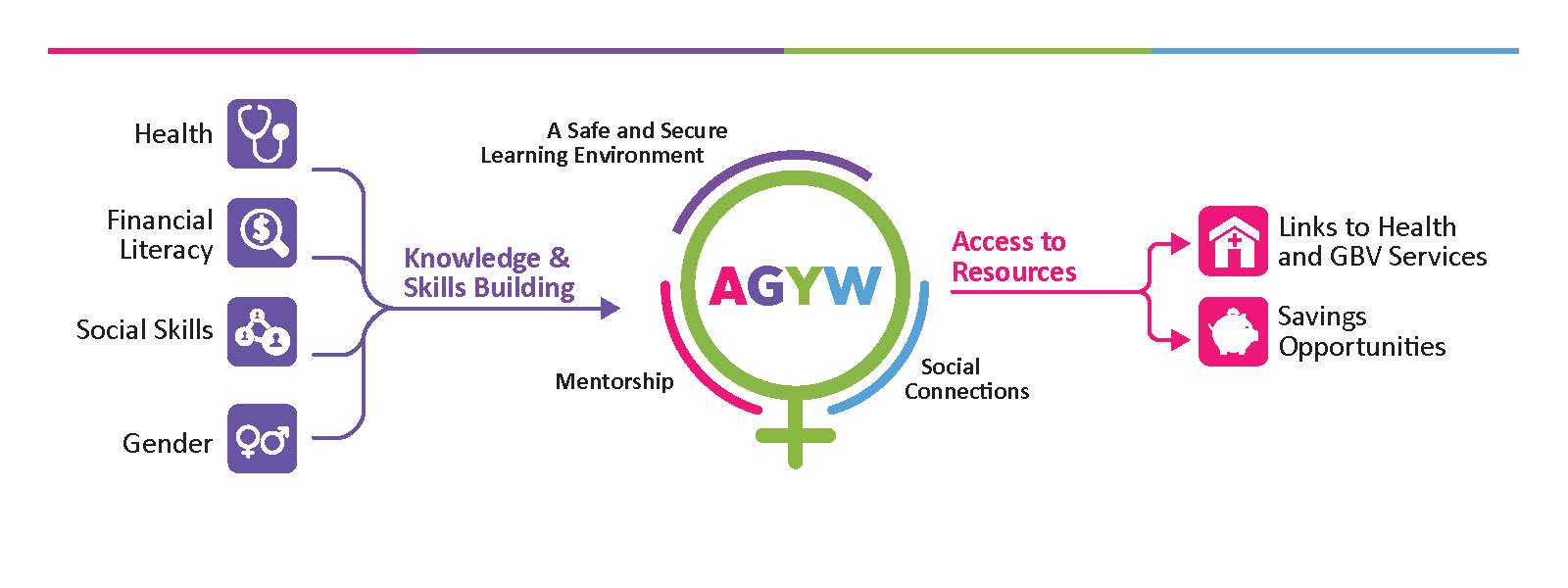Mentoring Equips Girls and Young Women with the Knowledge, Skills, and Support to Overcome Challenges

We’re sharing pieces that prioritize youth voices and highlight programs that support them and their family planning goals. We hope you enjoy this series and learn from the advocates and participants who share their experiences. Read the first piece, on keeping our promises to youth.
Worldwide, girls and young women face a wide array of challenges to their health and well-being. Given the complicated factors that contribute to these statistics, we cannot expect simple solutions. However, research on the impact of mentoring demonstrates the importance of positive role models and social support systems for improving health knowledge and outcomes. Our colleagues at FHI 360 share how they developed and implemented a multicomponent mentoring program Anyaka Makwiri (Smart Girl).
What is the Context?
Worldwide, adolescent girls and young women (AGYW) ages 10 to 24 face a wide array of challenges to their health and well-being. Each year, 12 million girls under the age of 18 are married; 61 million school-aged girls do not attend school; and approximately 50% of all sexual assaults are against girls age 15 or younger. In eastern and southern Africa, over 80% of new HIV infections among all adolescents occur among girls ages 15–19. Every year, about 16 million AGYW between the ages of 15 and 19 give birth.
Given the complicated factors that contribute to these statistics, we cannot expect simple solutions. However, research on the impact of mentoring demonstrates the importance of positive role models and social support systems for improving health knowledge and outcomes. In response, under the U.S. Agency for International Development (USAID)-funded YouthPower Action project, FHI 360 developed and implemented a multicomponent mentoring program for AGYW called Anyaka Makwiri (Smart Girl).

About Anyaka Makwiri
Anyaka Makwiri includes group-based mentoring, with a curriculum covering sexual and reproductive health, financial capabilities, soft skills, and gender; activities designed to improve participants’ social connectedness; optional onsite testing for sexually transmitted infections (STIs), HIV, and pregnancy along with STI treatment and links to HIV care and treatment; group-based savings; and links to contraceptive and gender-based violence services.
The entire mentoring toolkit consists of four parts:
- Trainer Handbook, for training mentors
- Mentor Handbook, with 26 group information sessions to be led by trained adult female mentors
- Participant Handbook, including worksheets and handouts for mentees
- Program Management Handbook, a collection of resources to help managers implement the mentoring program
The program was initially implemented in Gulu District, Northern Uganda, among 500 AGYW ages 15 to 26. Each mentoring group included 30 participants and four mentors, who were also young women also from the community. Between May and November 2017, in addition to weekly mentoring meetings, the Anyaka Makwiri program offered over 1,000 STI, HIV, and pregnancy tests, and approximately 200 screenings for cervical cancer and human papillomavirus.

What Was the Impact?
In this short video, several participants describe the profound impact the program has had on their lives, and their stories are supported by research. A study conducted in tandem with the implementation of Anyaka Makwiri found improvements in participants’ communication about HIV testing and counseling, their HIV knowledge―specifically, common misconceptions about HIV, methods of reducing sexual transmission, and mother-to-child transmission—and their savings behaviors. In fact, through the program’s savings group component, participants saved a total of 9.2 million Ugandan shillings (around 2,500 USD). Some participants organized their own income-generating activities such as farming, rearing livestock, and selling food and drinks.
What Came Next?
With funding from USAID’s Advancing Partners & Communities project, Anyaka Makwiri has been scaled up to three more districts in Uganda. The program’s success led FHI 360 to adapt and implement it in Burundi, Nigeria, and Ethiopia, where another 40,000 girls and young women have participated. In addition, FHI 360 also adapted it to create Young Emanzi, a mentoring program for boys and young men in Uganda.
[ss_click_to_tweet tweet=”They taught about menstrual hygiene, HIV/AIDS, savings. For instance, on the issue of savings, it helped me in terms of saving money and…” content=”They taught about menstrual hygiene, HIV/AIDS, savings. For instance, on the issue of savings, it helped me in terms of saving money and planned expenditures. On the issue of HIV/AIDS, it has made me know how to protect myself against HIV/AIDS, how to interact with people, and also know my health status. – Anyaka Makwiri participant” style=”default”]
Looking Ahead
The Youth Power Action Mentoring model presents family planning/reproductive health programmers with a tested approach for addressing the sexual and reproductive health (SRH) needs of AGYW. This model addresses social values and norms, builds financial skills, and links them to services for SRH and gender-based violence response. Most importantly, the approach leaves AGYW empowered to lead and sustain their own economic and health initiatives and improved outcomes.




